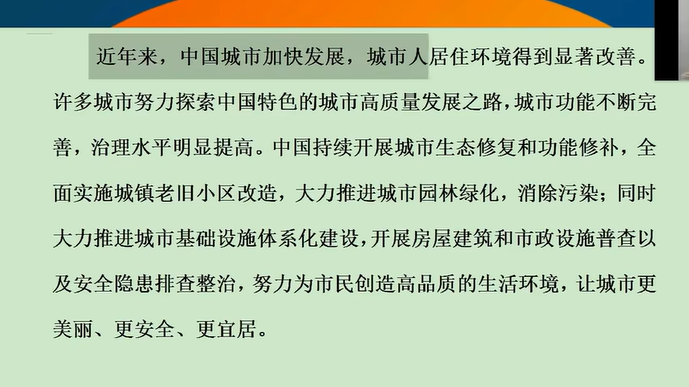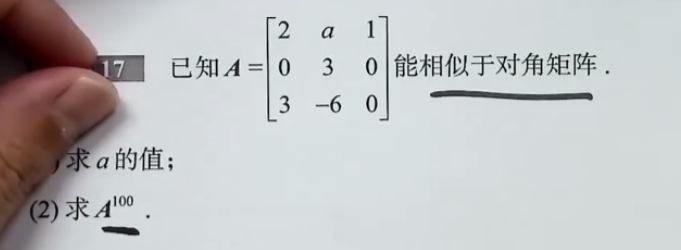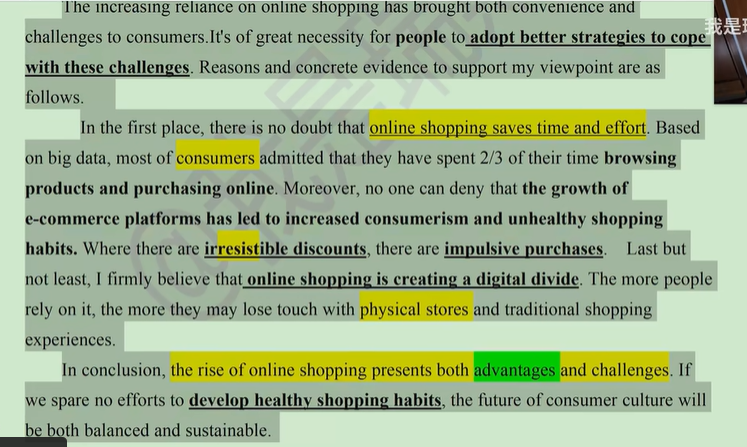
assumption假定
1.断点

In recent years,Chinese cityh has quicken development.THe environment of citizens'living has been imporved obviously.Many cities try hard to explore the high quality of Chinese road of development.The function of city renews,adnd the level of management imporves.China open the repair and fixtion of city.At the same time,it has put the constitusion of basic quality,finding the house and gorvrnment factility.Try their best to make high quality environment ,let city more betaioful,more safe,more reliable to live.
2.数学
1.相似对角阵

 The increasing of reliance on online shopping has brought both convince and challenge to consumers.It is of great necssity for people to adopt better strategies to cope with these chalenges.Reasons and concrete evidence to support my viewpoint are as fellows.
The increasing of reliance on online shopping has brought both convince and challenge to consumers.It is of great necssity for people to adopt better strategies to cope with these chalenges.Reasons and concrete evidence to support my viewpoint are as fellows.
In the first place,there is no doubt that online shopping saves time and effort.Based on big data,most of consumers addmittd that they have spent 2/3 of their time browsing product and purchasing online.
Moreover,no one can deny that the growth of e-commerce platfroms has led to increased conusmersim and unhealthy shopping habbits.Where
Last but not the least,
In conlusion,the rise of online shopping presents both convinece and challenges.If we spare no effory to develop healthy shopping habots,the future of consumers culture will be both balanced and suitable.
Text 11 Born from the accessibility of mass air travel, modern international tourism has been popularized as "holiday-making" in regions that offer comparative advantages of sand, sun and sea. Travel is often portrayed as a tool for personal growth and tourism as an economie motor for destination countries and cities. There is a tendency to assume that tourism is good for everyone involved.
Today the big bang of tourism drives over 1.2 billion tourists across international borders annually.Many popular places are literally being loved to death. Recent protests in ports of call like Venice and Barcelona against disturbances created by cruise ships show the unfortunate consequences of emphasizing quantity over quality in tourism.
Uncontrolled tourism development has become a primary driver of social and environmental disruption. Tourism studies provide much documentation of the many negative social impacts of tourism and resulting resentment that local populations direct toward visitors.
Antagonism toward tourists typically develops in mature, heavily visited destinations. Protests in heavily visited destinations suggest that traditional tourism has overstayed its welcome.
Residents often become frustrated when the benefits of tourism are not felt locally. Although it can generate foreign exchange, income and employment, there's no guarantee that multinational hotel chains will allocate these benefits equitably among local communities.
On the contrary, when people stay at large resorts or on cruise ships, they make most of their purchases there, leaving local communities little opportunity to benefit from tourist spending. These forms of tourism widen economic and political gaps between haves and have-nots at local destinations.
In recent decades, local residents in destination communities also have found themselves negotiating new cultural boundaries, class dynamics, service industry roles and lifestyle transformations. For example, data show that tourism activity corresponds to increased social problems as local residents adopt the behaviors of tourists.
What does all this mean for the everyday traveler?
First, all tourists should make every effort to honor their hosts and respect local conditions. This means being prepared to adapt to local customs and norms, rather than expecting local conditions to adapt to travelers.
Second, tourism is a market-based activity and works best when consumers reward better performers.In the information age, there's little excuse for travelers being uninformed about where their vacation money goes and who it enriches.
Informed travelers also are better able to distinguish between multinational companies and local entrepreneurs whose businesses provide direct social, environmental, and economic benefits for local residents. Such businesses are in love with the destination and are therefore deserving of market reward.In the long run, being a responsible traveler means ensuring net positive impacts for local people and environments. With the information available at our fingertips, there has never been more opportunity to do so.51.What is the popular assumption about international tourism?
A)Its benefits may compensate for the adverse environmental consequences.
B)Its rapid development is attributed to people's improved living standard.
C)It appeals to people in places with favorable geographical conditions.
D)It contributes to the economy of destination countries and regions.52.What do we learn from some studies about uncontrolled tourism development?
A)It gives rise to an increase in mass confrontations.
B)It incurs local residents' antagonism to tourists.
C)It inhibits the steady growth of local economy.
D) It brings in a large chunk of mobile population.53.Why does the author say local residents of popular destinations often feel frustrated?
A)They fall victim to social conflicts and environmental disturbances.
B)They have little opportunity to enjoy themselves on cruise ships.
C)They cannot find employment in multinational hotel chains.
D)They do not think they benefit as much as they deserve.54.How does the author say local residents in destination communities respond to tourism activity?
A)They endeavor to adapt to it.
B)They readily adopt new lifestyles.
C)They immerse tourists in their culture.
D)They try to upgrade their business models.55.What can tourists do to exert more positive impacts on the tourist destinations?
A)Show interest in local customs and lifestyles.
B) Seek possibilities to invest in local companies.
C) Use the services provided by local businesses
D) Give favorable comments about their services.